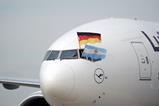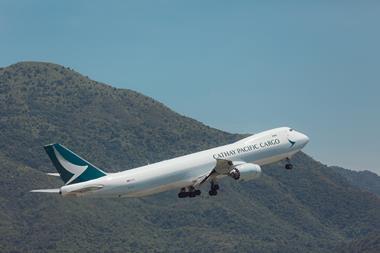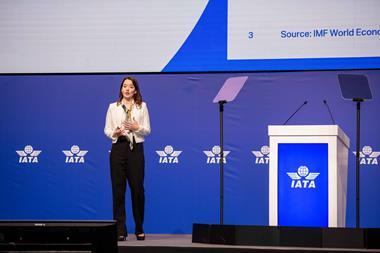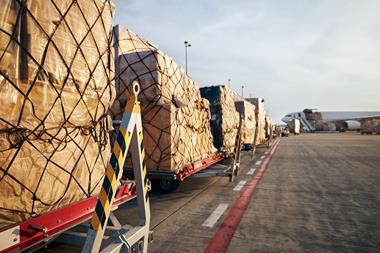Capacity constraints and high air cargo rates are expected to continue for the time being as the industry continues to battle with the impact of Covid-19.
In the latest Baltic Exchange market round-up, industry observers say that ongoing issues in ocean freight and the emergence of the omicron variant have delayed hopes of the market returning to normal.
Writing in the round-up, Gareth Sinclair of airfreight rate data provider Tac Index said that the Baltic Exchange Airfreight Index average for the month of December was an increase of 4% on November, up 55% versus 2020 and a "staggering" 210% increase over the same period in 2019.
"The air freight index finished the year at double the levels seen in January in response to increased demand and capacity constraints driven by the unprecedented levels of continued disruption across all supply chains," Sinclair said.
"There is currently little evidence that rates will fall significantly in the period up to Chinese New Year as backlogs are cleared and inventories restocked. Demand for international passenger flights is expected to be subdued throughout 2022 as many regions in the world still have a long way to go in their vaccination programmes."
Investment bank Stifel senior analyst Bruce Chan said that issues in ocean freight would also continue to keep the airfreight market tight.
"Ocean freight and port terminal congestion show few signs of amelioration and US road and rail infrastructure are contending with their own issues," he said. "As a result, airfreight is still the only option to address supply chain delays and shortages that must be addressed."
Chan added that price differential between air and ocean had narrowed during the last 12 months, making the decision to switch to air slightly less costly than previously.
"On the supply side, of course, Omicron has kept global business travel and belly capacity at bay. It has also reduced ramp and freighter capacity as well. In practice, there have been more infections and thus more handlers and flight crews calling out sick (increased virulence despite less reported severity for vaccinated individuals). Supply reductions have also come by way of policy."
He concluded: "With little relief coming to broader supply chain congestion, with broad demand expected to remain strong (e.g., we believe Europe is further behind the U.S. on the inventory recovery curve and has more ground to recover), with capacity still under pressure, we don’t expect much relief any time soon.
"We think that shippers must continue to plan and budget aggressively, as our timeline for a moderating market continues to get pushed out."

https://www.aircargonews.net/data/airfreight-rates-end-the-year-on-a-high-2/















